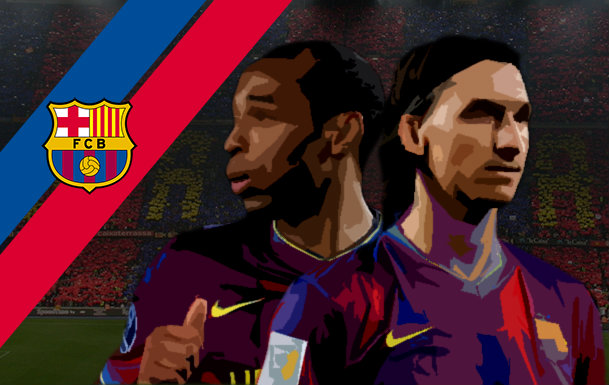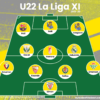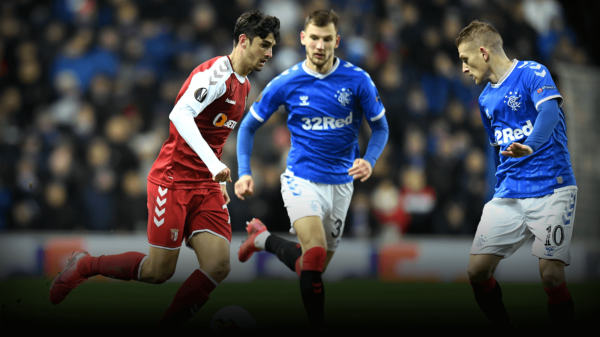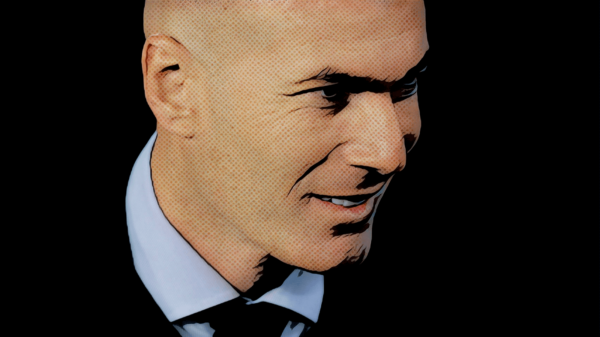The transfer windows are one of football’s many attractions. There are teams that seem to thrive in this competitive world while there are others who seem hell-bent on repeating the same mistakes time and again. Wasi Manazir discusses Barcelona’s profligate approach to the transfer market.
When it comes to football’s bi-annual affair of transfer markets some clubs have achieved a certain mastery over the art and craft of finding players who are good value for money and live up to their promise, Arsenal under the tutelage of the economist Arsene Wenger is a good example of that. Others have built a reputation of finding unpolished gems, crafting them and then selling them at 3-4 times their purchase price, Portuguese giants Porto and Benfica are prime examples of this, while Olympique Lyon during their golden period from 2002-2008 under software entrepreneur Jean-Michel Aulas’ presidency also built their success around buying talent for cheap and then selling them at high rates.
Then there are some whose transfer dealings defy conventional beliefs of market economics, Chelsea especially during the initial Abramovich years, Manchester City after the takeover by the Abu Dhabi royal family, and now the noveau riche Paris Saint Germain after being acquired by the Qatar royalty are prime examples of this but perhaps the club that leaves them all in their wake for some of the most bizarre transfer dealings are the giants of Spanish football – FC Barcelona. I will try to highlight some of their most puzzling transfer market dealings over the last decade or so.
Marc Overmars
The timeline of Barcelona’s extravagance goes a long way but for the sake of comprehensiveness I will restrict this article to the players signed since the beginning of new millennia. The season 2000-01 at Camp Nou began with twin signing of Arsenal’s Marc Overmars and Emmanuel Petit, now on the face of it they both appear fantastic signings having been part of the all conquering Arsene Wenger’s side. Overmars in his first season at the North London club, was the focal point of their double winning season. Starting generally on the left wing Overmars was in a devastating run of form through his 3 years at Highbury scoring 25 times in 101 appearances. One crucial thing to look at the transfer is the fact that Overmars was very injury prone and nearing his 28th birthday. There was always the possibility of him suffering more injuries as he grew older and was passing his prime.
Wenger on his part got, as he often does, exactly what he wanted out of the deal. As the brilliant “Soccernomics” illustrates Wenger’s faith in player’s approaching 30 starts to wane and he looks to cash in on them with the belief that even if they perform like before they can’t keep it up beyond 1 or 2 seasons before their powers begin to desert them. Thus it’s ideal to make as much money out of their tiring legs as possible. Marc Overmars was a prime example of the shrewd Frenchman’s belief.
It’s notable that the Dutchman was acquired for £5.5 million from Ajax in 1997, a year before which he had suffered a serious knee injury. After getting 3 years of his peak performance, an older and more injury prone Overmars was sold at almost five times the price – £25 million, thus making him the most expensive player in Dutch football history and placed him at fourth overall at the time.
At Barcelona Overmars played only the first season as a regular before being reduced to appearances off the bench and soon enough became a peripheral player owing to his persistently troublesome knee which forced him into retirement at quite an early age of 31. Though, he did have his moments at times when he practically ran the show on the pitch, in the end Barca didn’t exactly get what they paid for, during his four seasons at the club he made 97 appearances and scored 15 times, thus justifying Wenger’s decision to sell him.
Thierry Henry
Unarguably one of the best strikers in the world when he took the oft trodden path from Highbury/Emirates to Camp Nou, he undoubtedly is one of the greatest players to have graced the English Premier League and in no way was his performance as bad as some of those in this list. But he gets a mention as he is a prime example of Barcelona’s profligacy in the transfer market.
Having won all that he could in England both at an individual and team level he came to Barca in search of the missing Champions League in his trophy cabinet, he did win it in 2009 when Barcelona were crowned champions in Rome. Though, his search for glory was an expensive exercise for the Catalans. Henry’s transfer fee was hefty for two main reasons; first, he was played on the left wing not his favored central striker position which was occupied by Samuel Eto’o. Second, he was fast approaching his 30th birthday when Barcelona came calling in 2007.
For strikers pace is one of their biggest weapons and it doesn’t take a genius to figure out that age slows you down. Arsene Wenger must have been rubbing his hands in glee as the transfer fit his narrative to perfection – selling an ageing giant at the best possible price and at a time when he probably has no more than a season or two of high level football left in him. Wenger was right again.
After three seasons out of a contracted four the last of which was spent as a substitute for La Masia grad Pedro he was transferred to NY Red Bulls for free. Yes, for free. At a time when the emerging leagues of Middle East, MLS, Russia etc. pay through their noses to bring big names to their shores, one of the greatest players of his generation was transferred for free when he still had a year left on his contract. Henry’s transfer is one of the most prominent examples of Barcelona’s incompetence in the transfer market.
Zlatan Ibrahimovic
The 30 year old Swede’s transfer in 2009-10 left a very bitter taste for so many Cules and the reasons were not just of football. It still leaves an uneasy feeling that he was purchased for a staggering €46 million from the Italian outfit, Inter Milan, and the price was not all. Inter in addition to their cash pot got Samuel Eto’o for free and Alexander Hleb on loan (with an option to purchase).
It’s worth notice that at the time the Cameroonian was one of the top strikers in the world and would easily be amongst one of the top 5 strikers in Barcelona’s history. Being a loud mouth under a strict disciplinarian like Guardiola, Eto’o had no place in his team and he had to be off loaded. At any rate he was as good as Ibrahimovic and commanded the same price if not more. But in an extraordinary turn of events apart from the massive sum Inter also got Eto’o and Hleb for nothing.
As it turned out Barca’s nightmare with the Swede had just begun. Perhaps, Guardiola saw in him a tall and strong striker who would provide an alternative to his preferred tiki-taka as he could reach and connect crosses and sometimes long balls (one glorious example of this was the goal he scored off a precise long ball from Pique at the Emirates in 2009-10 Champions League quarter final) when push came to shove.
But instead what Guardiola got was a slow moving, and pressing shy forward who would just amble around on the pitch thus breaking the whole rhythmic nature of football that Pep had built around a systematic and coherent movement of the players. Things didn’t work out as intended and towards the fag end of the season he was being benched in favor of the teenager Bojan Krkic.
As if transfer fee, and on field performances were not enough things came to a head in the dressing room with the much respected Pep Guardiola and if reports are to be believed he even threatened the manager with physical assault. After, a nightmarish 12 months at Barca, he was swiftly loaned out to AC Milan who a year later bought him for an estimated €24m.To reinforce, he was bought for €46m + Samuel Eto’o + Alexander Hleb and lasted one season.
David Villa
Continuing their trend of signing players fast approaching their twilight years at astronomical sums Barcelona acquired David Villa from Valencia for €40m, and just like Henry transfer it was too high a price for similar reasons.
Shunted out to the left because Messi is untouchable through the center, and approaching 30, the Catalan giants got one good season out of their €40m signing. In his first season at the club Villa justified his position in the team, scoring at Wembley in the Champions league final in 2011 and finishing the season with 18 goals in 34 league appearances. Fantastic returns for a player starting most games on the wings. After the first season it all went downhill for Villa, in a Club World Cup match against Al Sadd he broke his tibia which saw him sit out the majority of 2011-12 season as well as the 2012 Euro Cup. After his return from injury and into his last season David Villa had become a peripheral figure in the squad, mostly making sub appearances, as the arrival of Cesc saw Iniesta playing on the left in order accommodate Cesc in the midfield.
What makes the transfer even more striking is the fact that Barcelona had pursued him a year before but were not willing to pay the €40m that Valencia demanded and instead brought in Ibrahimovic. They corrected their mistake a year too late but yet at the same price. This speaks about the board’s negotiation skills or rather the lack of it.
Three seasons, 33 goals in 77 appearances later Villa was sold to Atletico Madrid for a meager €2m.
Alexander Song
At the end of the 2011-12 season Barcelona was going through a transitional phase with Pep taking a sabbatical after his phenomenal four years at the club and his deputy Tito taking charge of affairs at the Camp Nou. Following up on Guardiola’s legacy would have been a tough task for any manager in the world and Tito in his first job at senior football was no different. His task was compounded by lack of resources at his disposal and most of all he needed to shore up a shaky defence.
Gerard Pique and Carles Puyol were the only experienced center backs in the team, Bartra still in his nascent stage at the highest level. Javier Mascherano was being played out of position to pair with Pique whenever Puyol was out injured which was fairly often as Puyol got older. All in all Barca in no way had the luxury not signing a CB.
The board got to work and bought Arsenal central midfielder Alexander Song. It is notable that Song was coming at the back of his best season at the Emirates having provided many an assist for Robin van Persie who too was in the form of his life that year.
Quite how the club came to the conclusion that an offensive player, plagued with a lack of positional understanding could play as a defensive mid let alone as a CB nobody knows. If the thinking was to permanently play Mascherano at the back and use Song as a backup for Busquets, then it wasn’t going to work either, as Song lacked the requisite skills to play Busquets’ position and even then Mascherano was a much better player for it instead of Song.
Everything pointed to signing a proven CB. But instead they signed a dead weight in Song who made late substitute appearances when the matches were long done and dusted.
Two seasons later his tally stands at 39 inconsequential appearances and looks set to start another fruitless season at the Camp Nou or move to a willing taker before the shop window closes. Barcelona paid £15 million to Arsenal for this pretty much useless bit of business.
Cesc Fabregas
After a very protracted saga Fabregas made his much publicized return to his home team. Prior to his return, there was a perennial clamor around how Wenger stole him from Barca’s academy and how Cesc yearned to come back to his home team. Many a public comments were made by the team members, Pep and the board about bringing him back to the fold.
The long winding saga finally came to an end at the beginning of 2011-12 season when he was signed for a reported €30m and its worth a mention that Cesc took a pay cut to ease the deal. It all looked hunky dory till then, though the doubters did question his position in the starting eleven.
It was always going to be a challenge for Pep to accommodate Cesc in his favored 3 man midfield made up by the imperious Busquets, Xavi, and Iniesta. Surely, Arsenal’s captain was not bought at such a high price to make sub appearances. Pep found a way – he moved Iniesta up the left flank in place of Villa and played Cesc in his place.
The season got to a very promising start with the Spanish Super Cup win against Real Madrid. The league saw some beautiful dovetailing between Cesc and Messi, who showed telepathic understanding perhaps as a result of their early years in La Masia, both assisted each other in about the first 10 games. The novelty soon began to wear off as Iniesta’s high positioning saw his effectiveness diminish and Cesc occupying spaces where Iniesta thrives as well as treading in Messi’s territory.
As the season wore on Cesc began to look more and more of a misfit having trouble with positioning and not putting the defensive work that Pep demanded of all his players. The worst for Barca was to come in Cesc’s second season at the club. His continued presence on Tito’s team sheet saw Thiago Alcantara’s minutes reduced, a player billed as Xavi’s succesor and possessing all the attributes to succeed him. He had a clause in his contract that gave him the freedom to move if he played less than the stipulated minutes. The unthinkable happened when that clause was triggered and Thiago followed Pep to Bayern.
Now, Xavi was ageing, missing matches due to injuries, and his most effective replacement was sold out for peanuts in order to accommodate Cesc who never quite fit the Barca narrative.
Another unimpressive season followed under Tata before he was offloaded to Chelsea for a reported £30m. His was a classic case of the club buying a player that they didn’t even need but unfortunately it came with the additional cost of losing the extremely promising Thiago Alcantara. It’s Bayern’s faith in him that saw them not flinching at Toni Kroos’ demand for a hike safe in the knowledge that they will still have the younger and perhaps even more talented Thiago as his replacement.
Cesc was a signing that should never have happened.
Keirrison
Keirrison is one of those dreadful purchases that don’t have many precedents and clubs would do anything to avoid following his example. The young Brazilian billed as the next Ronaldinho was signed for €14m from Palmeiras on a 5 year contract and after spending all 5 of them on loan he was finally offloaded.
It defies belief that over the course of his five years at Camp Nou he didn’t make a single appearance for the club.
Some other equally disastrous signings have been made in the form of Christanval, Chryginskiy, Caceres, Hleb, Sonny Anderson, Andresson etc. but then when a big club makes a number of purchases there are bound to be some that won’t work out quite as expected. The list I made discusses the players who had a more lasting impact on the club and will leave a legacy behind, though not for good reasons.
Barcelona’s failings in transfers are exacerbated by the fact that the club not only struggles to acquire players at reasonable rates but equally struggles to offload the ones that didn’t work out.
Zlatan clearly didnt work out but instead of being sold he was loaned to AC Milan. Surely, one of the best strikers in the game he didn’t lack any suitors. It took Barcelona an awfully long time to get rid of Bojan Krkic who spent 3 lackluster seasons on loan before his permanent move to Stoke City, injury prone Inrahim Afellay has spent half the time in hospital and the other half on endless stream of loans after a marginally successful first season. This season he has been loaned to Olympiacos. Alexander Hleb almost ran down his contract before the club could get rid of him. The list runs long.
Even when the club sells its players, it is at comically low prices. A prime example is David Villa who moved for a paltry €2m, at a time when Tottenham Hotspur were fervently looking to sign a striker that season and showed interest in him for a much bigger sum. Thierry Henry was sold for free, Samuel Eto’o was let go off for free. This list too runs quite long.
It’s not just about the disproportionate fees paid for the players they signed but also the players that they didn’t sign that tells the story of Barca’s transfer market foibles. As mentioned earlier, David Villa wasn’t purchased in 2009-10 even though he was a transfer target for his price was deemed too high but signed the next year for the exact same price which perhaps cost the team the Champions League.
Thiago Silva was a target in 2012 but the board didn’t pay the price Milan demanded and he moved to PSG even though Thiago publicly claimed his desire to play for the Catalans. After the ship had sailed the club tried to sign him from PSG in 2013 but his price was beyond reach. Jan Vertonghen was available for dirt cheap and if rumors are to be believed he was pursued only after he had risen in profile after his move to England.
This season the club has gone ahead and signed two center backs to correct the historical errors, but neither signings are all too convincing. Jeremy Mathieu will be turning 31 coming October yet he cost €20m making him the most expensive defender over 30. The other defender is Thomas Vermaelen who cost a decent £15 million, but at 28 he isn’t young by any means and what complicates the matters is the fact that he is very injury prone, so much so that he will start the season on the recovery table. Only time will tell about the prudence of these decisions.
Barcelona’s transfer policy seems to be the exact contrast of the most important finance maxim – “Buy low, sell high”, Barca repeatedly does the opposite – “Buys high, sells low”.
Written by Wasi Manazir.
- Enrique’s indecision: Barcelona relying on moments of magic - December 14, 2014
- Dani Alves: A Bygone Threat? - November 27, 2014
- Scout Report | Muhamed Besic: Everton & Bosnia’s solid midfielder - November 20, 2014



























































